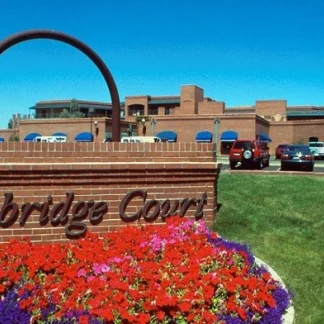Jewish Family Service
Jewish Family & Children's Services (JFCS) is a substance abuse and mental h...
RI International is a mental illness and substance abuse support center headquartered in Phoenix, Arizona. They operate a series of programs in several states dedicated to helping people in crisis recover and return to their lives. They serve adult clients.
The organization operates on the principles of safety, engagement, performance, and peer integration, which it calls the “RI Way.” Using these principles, staff make meaningful connections with clients, partners, and community resources to strengthen their care programs. Services include crisis stabilization, outpatient treatment, and recovery housing.
The crisis stabilization services aim to help clients in crisis find stability as quickly and safely as possible. Once stable, clients may be referred to other RI International programs or those operated by other facilities. Crisis stabilization combines the peer, medical, and clinical aspects of long-term treatment plans to support clients in all stages of the crisis.
The outpatient program is designed for clients who are stable and don’t require constant supervision for their symptoms. During participation in the outpatient program, clients visit the facility regularly to engage in recovery activities. These typically include therapy (individual and group) and peer recovery activities.
RI International provides both transitional and permanent housing solutions for those in recovery. Those who qualify also receive case management, transportation, living support, and other wrap-around services.
Since in network and out of network benefits can vary, clients should always confirm coverage with their insurance provider before enrolling in a treatment program.
Contact us for more information: (602) 650-1212

Connect with RI International by calling their admissions team directly.
(602) 650-1212 Website Get DirectionsCognitive Behavioral Therapy (CBT) is a therapy modality that focuses on the relationship between one's thoughts, feelings, and behaviors. It is used to establish and allow for healthy responses to thoughts and feelings (instead of unhealthy responses, like using drugs or alcohol). CBT has been proven effective for recovering addicts of all kinds, and is used to strengthen a patient's own self-awareness and ability to self-regulate. CBT allows individuals to monitor their own emotional state, become more adept at communicating with others, and manage stress without needing to engage in substance abuse.
Group therapy is any therapeutic work that happens in a group (not one-on-one). There are a number of different group therapy modalities, including support groups, experiential therapy, psycho-education, and more. Group therapy involves treatment as well as processing interaction between group members.
In individual therapy, a patient meets one-on-one with a trained psychologist or counselor. Therapy is a pivotal part of effective substance abuse treatment, as it often covers root causes of addiction, including challenges faced by the patient in their social, family, and work/school life.
Life skills trainings involve all the skills a person must have in order to function successfully in the world. These include time management, career guidance, money management, and effective communication. Truly successful addiction recovery is based on the ability to not only live substance-free, but to thrive. Life skills teaches the practical necessities of functioning in society, which sets clients up for success in life, and therefore sobriety.
Group therapy is any therapeutic work that happens in a group (not one-on-one). There are a number of different group therapy modalities, including support groups, experiential therapy, psycho-education, and more. Group therapy involves treatment as well as processing interaction between group members.
In individual therapy, a patient meets one-on-one with a trained psychologist or counselor. Therapy is a pivotal part of effective substance abuse treatment, as it often covers root causes of addiction, including challenges faced by the patient in their social, family, and work/school life.
Life skills trainings involve all the skills a person must have in order to function successfully in the world. These include time management, career guidance, money management, and effective communication. Truly successful addiction recovery is based on the ability to not only live substance-free, but to thrive. Life skills teaches the practical necessities of functioning in society, which sets clients up for success in life, and therefore sobriety.
In individual therapy, a patient meets one-on-one with a trained psychologist or counselor. Therapy is a pivotal part of effective substance abuse treatment, as it often covers root causes of addiction, including challenges faced by the patient in their social, family, and work/school life.
Life skills trainings involve all the skills a person must have in order to function successfully in the world. These include time management, career guidance, money management, and effective communication. Truly successful addiction recovery is based on the ability to not only live substance-free, but to thrive. Life skills teaches the practical necessities of functioning in society, which sets clients up for success in life, and therefore sobriety.
Life skills trainings involve all the skills a person must have in order to function successfully in the world. These include time management, career guidance, money management, and effective communication. Truly successful addiction recovery is based on the ability to not only live substance-free, but to thrive. Life skills teaches the practical necessities of functioning in society, which sets clients up for success in life, and therefore sobriety.
Jewish Family & Children's Services (JFCS) is a substance abuse and mental h...
Enchantment Workshops, located in Phoenix, Arizona, provides alcohol and drug re...
Southwest Behavioral Health - Erickson Outpatient is a behavioral health care an...
Phoenix Shanti Group is a private rehab located in Phoenix, Arizona. Phoenix Sha...